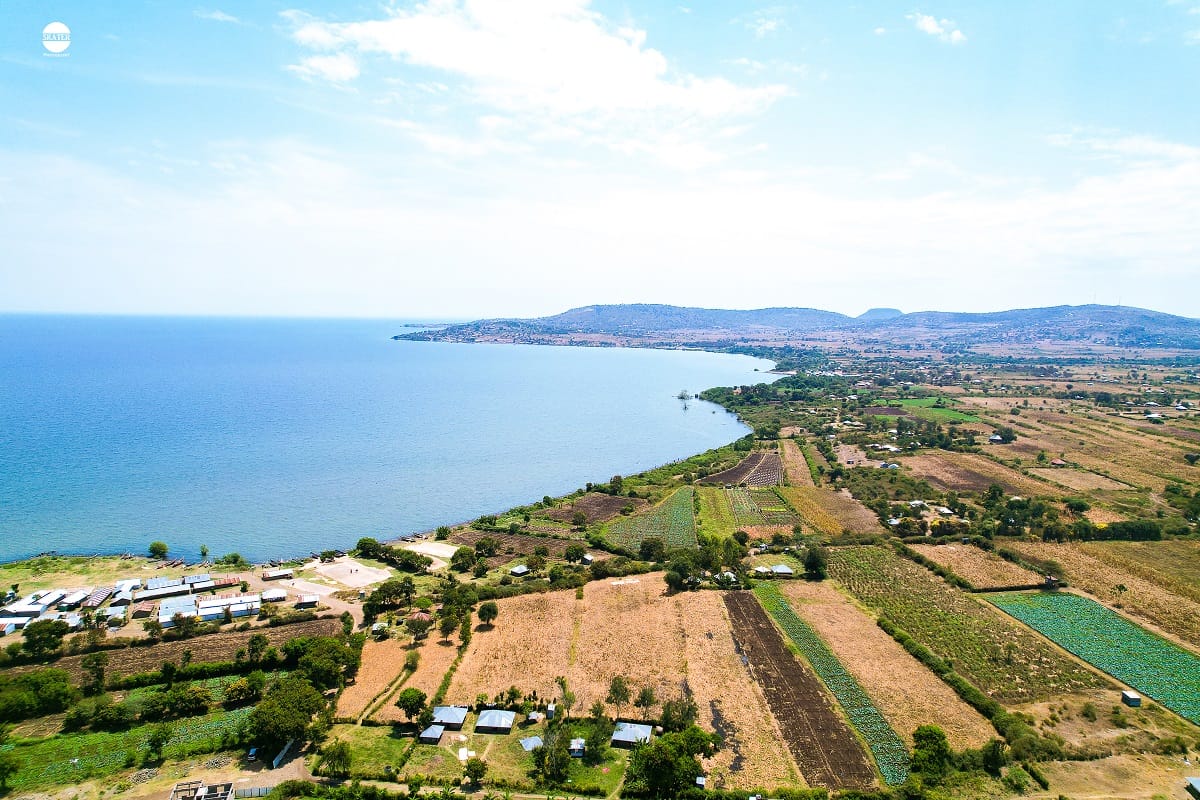In the heart of East Africa, nestled against the shimmering waters of Lake Victoria, there was a community of resilient farmers whose lives were deeply intertwined with the rhythms of the great lake. For generations, they had toiled under the African sun, tilling the fertile soil along the lake’s edge and reaping the bountiful harvests that sustained their families and the surrounding villages.

Photo by Julius Kimani
The challenges they faced were as vast as the lake itself. Each morning, as the sun painted the sky with shades of orange and pink, the farmers would set out in their small wooden boats, casting their nets into the lake’s depths. For many, this was their only source of income, but the once-teeming fish populations were dwindling, and the catch had become meager. Overfishing, pollution, and climate change had taken their toll, leaving the farmers struggling to make ends meet.

Photo by Julius Kimani
On the shores of Lake Victoria, the lush green fields were a testament to the farmers’ dedication and hard work. They grew an abundance of crops, from maize to cassava, sweet potatoes to beans. Yet, the erratic weather patterns brought on by climate change had become a constant threat. Unpredictable rains, prolonged droughts, and devastating floods wreaked havoc on their crops, making it increasingly difficult to feed their families and the communities they served.

Photo by Julius Kimani
But the farmers were not ones to give up easily. They banded together, forming cooperatives and sharing knowledge about sustainable farming practices. They learned to adapt their techniques, planting drought-resistant crops and using organic fertilizers to protect the delicate ecosystem of the lake. They also started tree-planting initiatives to combat deforestation and erosion, understanding that the health of the lake was intricately linked to the health of the land.

Photo by Julius Kimani
Education became a cornerstone of their efforts. Local schools and community organizations partnered with environmental NGOs to teach the younger generation about the importance of preserving Lake Victoria’s biodiversity. They instilled in them a deep love for the land and the water, hoping that they would carry on the legacy of their ancestors.

Photo by Julius Kimani
Despite the challenges they faced, the farmers of Lake Victoria refused to be defeated. They found hope in the glimmers of progress they witnessed each day. The gradual return of fish to the lake, the improved crop yields, and the growing awareness of environmental issues among the younger generation were all signs that their efforts were not in vain.

Photo by Julius Kimani
As the sun dipped below the horizon each evening, casting a warm, golden glow over the lake, the farmers would gather around communal fires. They shared stories of their struggles and successes, their dreams for a brighter future, and their commitment to safeguarding Lake Victoria for generations to come. In the face of adversity, they had become stewards of both the land and the water, a testament to the strength of the human spirit and the enduring bond between a community and the lake that sustained them.

Photo by Julius Kimani


